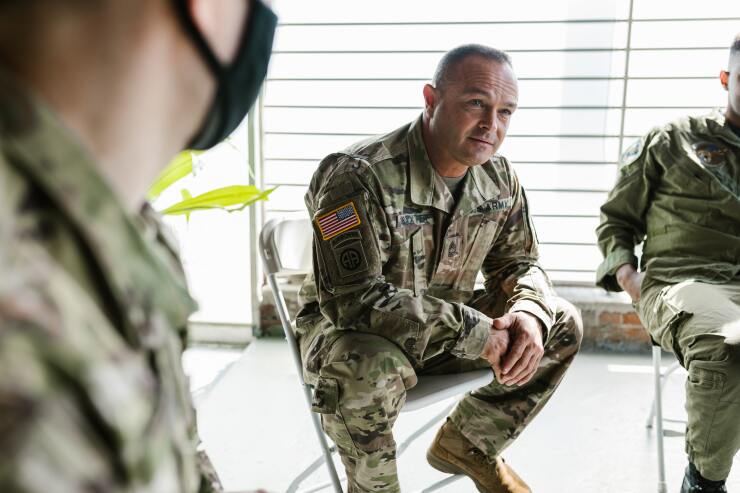Military service members and veterans have made huge sacrifices in order to protect and serve. But those sacrifices don't end when they return to civilian life — for many, their
Forty-three percent of veterans say their mental health is worse than before they enlisted in the military, according to
Read more:
Suffering in silence has ramifications for both their work relationships and career prospects post-service: the survey found that 69% struggle to keep a job or are unemployed due to their mental health. Fifty-six percent say their mental health
"Unfortunately, there is a very real stigma around veterans asking for help. Asking for help is not a weakness," Noah Nordheimer, founder and CEO of APN, said in a release. "We train our military before they go to war — now it's time to seriously consider how we train them to re-enter civilian life."
In 2014, the U.S. military commissioned the largest survey ever done on military mental health, and discovered that rates of major depression were five times higher for soldiers than for civilians, while rates of PTSD were 15 times higher. A separate study by the Department of Veterans Affairs estimated that each day, 22 veterans take their own lives. These sobering statistics point to a dramatic need for mental health support and resources for this demographic.
Read more:
Veterans are open to treatment — the APN report found that 49% would be open to non-traditional forms of treatment over medications like antidepressants. The FDA has approved new methods for treating depression and
APN works with veterans on holistic treatment plans, including group therapy, TMS and medication management services. The goal is to meet veterans where they are and provide as many accessible pathways to treatment.
"As an industry, we must continue to work towards destigmatizing mental health treatment and seek new, more effective options to inspire veterans as they've inspired us," Nordheimer said in the release. "Veterans and their families face unique challenges and as such, they need customized mental healthcare."






